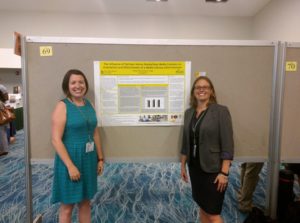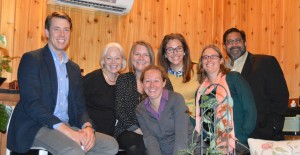My Research Interests
The digital media environment has made ever more important to understand how audiences respond to and perceive fragmented and ever-more diverse media messages. For media outlets, this increased competition for audience attention has led them to adopt a wide variety of new formats, styles, and approaches to content production. For audiences, the multiplicity of options allows individuals to personalize their media diet according to their preferences. My research focuses on bridging these two area by examining how the choices made by content producers in how they present their content intersect with the preferences and goals of the audiences to shape media effects in a myriad of ways. I am especially interested in investigating how people decide to engage with – or avoid – disagreement on contentious social, health, science, and political issues, and how we as social scientists can improve information processing and mitigate misperceptions.
More specifically, my research addresses several related areas:
Correcting Misinformation on Social Media
Although questions about the prevalence of “fake news” on social media have sparked international debate, particularly after the 2016 election, concerns about the prevalence of misinformation online are longstanding. Such misinformation is especially problematic when it creates misperceptions that counter clear expert consensus. With Dr. Leticia Bode, we have used a series of studies to explore the potential for observational correction to occur on social media in the domain of health misinformation, whereby people see corrections of incorrect information posted by other social media users and update their own attitudes to reflect correct beliefs as a result. Our studies have suggested that the Facebook related stories algorithm can successful debunk myths about the safety of GMO foods (but not whether vaccines cause autism), and that other users on Facebook can have a similar effect. Examining the Zika virus, we found that such user corrections require a link to an expert source, and can be effective both on Twitter and Facebook. But while two users may be required to correct misperceptions, a single tweet from the CDC is effective in mitigating misperceptions without harming the CDC’s credibility. Notably, however, user tone – either incivility or affirmative – did not affect the success of user corrections in reducing misperceptions, suggesting there is a lot of flexibility for users to select the tone they prefer. These studies suggest that users and organizations need to be more proactive in responding to misinformation on Twitter – even if they do not convince the original poster they are incorrect, they may influence the audience seeing these conversations.
News Literacy
Another possible solution to addressing misinformation and biased processing may be increased news literacy education. Yet teaching people news literacy in the classroom necessarily limits the people exposed to such information, and divorces these lessons from their actual experience with media. Initially, my interest in news literacy was spurred Dr. Melissa Tully, Dr. Hernando Rojas, and I began investigating whether media literacy training can be moved outside the classroom. Our initial research suggested that such training can limit hostile media perceptions for neutral news content, although it may also exacerbate polarization when paired with partisan environments. Dr. Tully and I have continued to examine the types of news media literacy messages that mimic public service announcements (PSAs) to see whether particular messages are effective in limiting biased processing and promoting democratic engagement, as well as the improving the understandings of news media literacy that exist among the public. We are currently testing how these messages alter not just perceptions of news but also news consumption patterns.
However, our interest in news literacy messages has expanded to consider whether they help people recognize misinformation on social media or become more responsive to highly credible corrective information. We found that familiarity with and value for news literacy was associated with skepticism of social media (in line with other studies suggesting news literacy knowledge can reduce beliefs in conspiracy theories and misinformation). Merging two research teams together, Dr. Bode, Dr. Tully, and I have found mixed evidence for the success of news literacy messages embedded in social media feeds in helping people recognize misinformation when they see it – and also did not make exposure corrections from experts more effective in reducing misperceptions. We continue our efforts to determine which news literacy messages are most successful in social media environments.
Social Media and Expression
Social media are unique in their ability to engage people with content they might otherwise avoid. For some, social media offer yet another way to find and discuss a range of news and political content, but for many, such exposure is often incidental, occurring through the wide social contacts that inhabit these spaces. For those already interested in a topic, social media appear to offer new opportunities for people to consume news content and participate in the political process, yet also present unique challenges in an increasingly competitive space for limited attention. My projects in social media span examining how protest movements are using social media for online activism, the spread of health narratives on social media, how (some) young adults are using social media for news and politics and how this responds to and shapes norms of political expression online, and what types of political and news content young adults actually pay attention to – and how well they can report such attention.
Disagreement and Controversial Issues
Social media are likely to be particularly valuable for facilitating discussion across lines of difference on controversial issues across a range of domains, including health, science, and politics. In general, an individual’s pre-existing attitudes often limits the types of information they tend to seek out and engage with, with most people expressing a preference for agreeable content. My research has investigated questions such as how structural choices and audience motivations can influence selective exposure and learning and whether incongruent political quizzes can sharpen political identity across a range of issues, with a special emphasis on climate change communication and the Zika virus. I am interested in exploring who sees and responds to political disagreement in social media, and whether individual differences complicate the value for and willingness to engage in future discourse on public issues.
Work with Me
Diverse Methods
Across these projects, I am always testing new methods to better understand the questions of the types of content people are engaging with, their motivations for selecting some content over others, and the implications such choices have for democratic outcomes. Although I often prefer experimental designs to be able to speak to media effects, I also frequently rely on content analysis, survey data, and qualitative interviews. I have also tested more innovative methods, including using eye tracking to precisely gauge attention to social media content, employ rolling cross-sections to perceive changes during the campaign cycle, and harvesting social media data to uncover information flows on diverse issues. I’m always looking for new ways to better represent people’s actual media experiences.
Loving Collaboration
Throughout my work, I tend to prefer working with teams of scholars to better address and answer these complicated research questions. I find that working with my colleagues forces me to consider alternative answers for my research questions, bridging together approaches and theories to better understand a complicated media landscape. It also allows for more sophisticated inquiries – harvesting millions of tweets about health issues, coding thousands of YouTube videos, creating social media posts about news and politics, or producing media literacy PSAs is much better done in a team!

